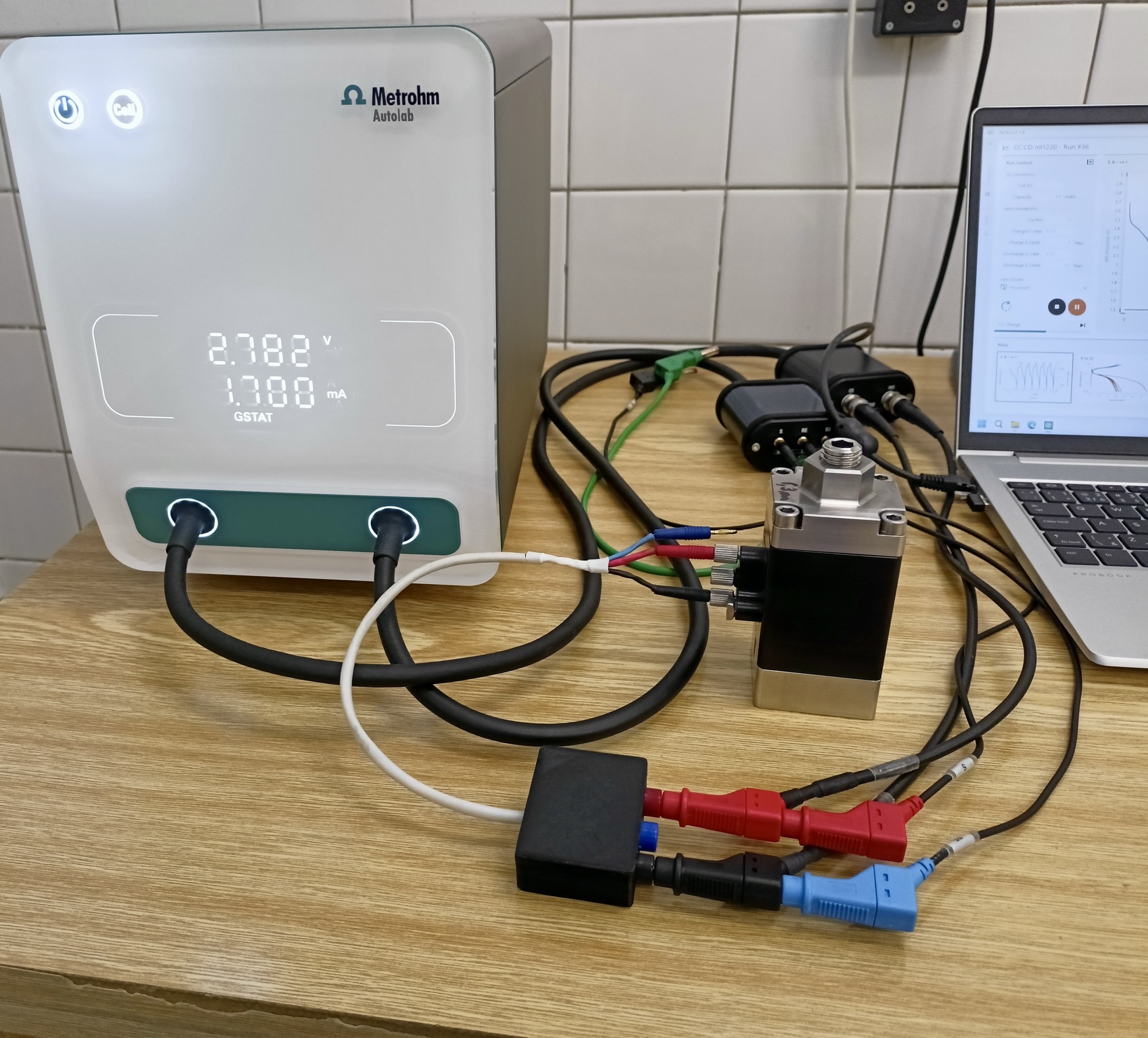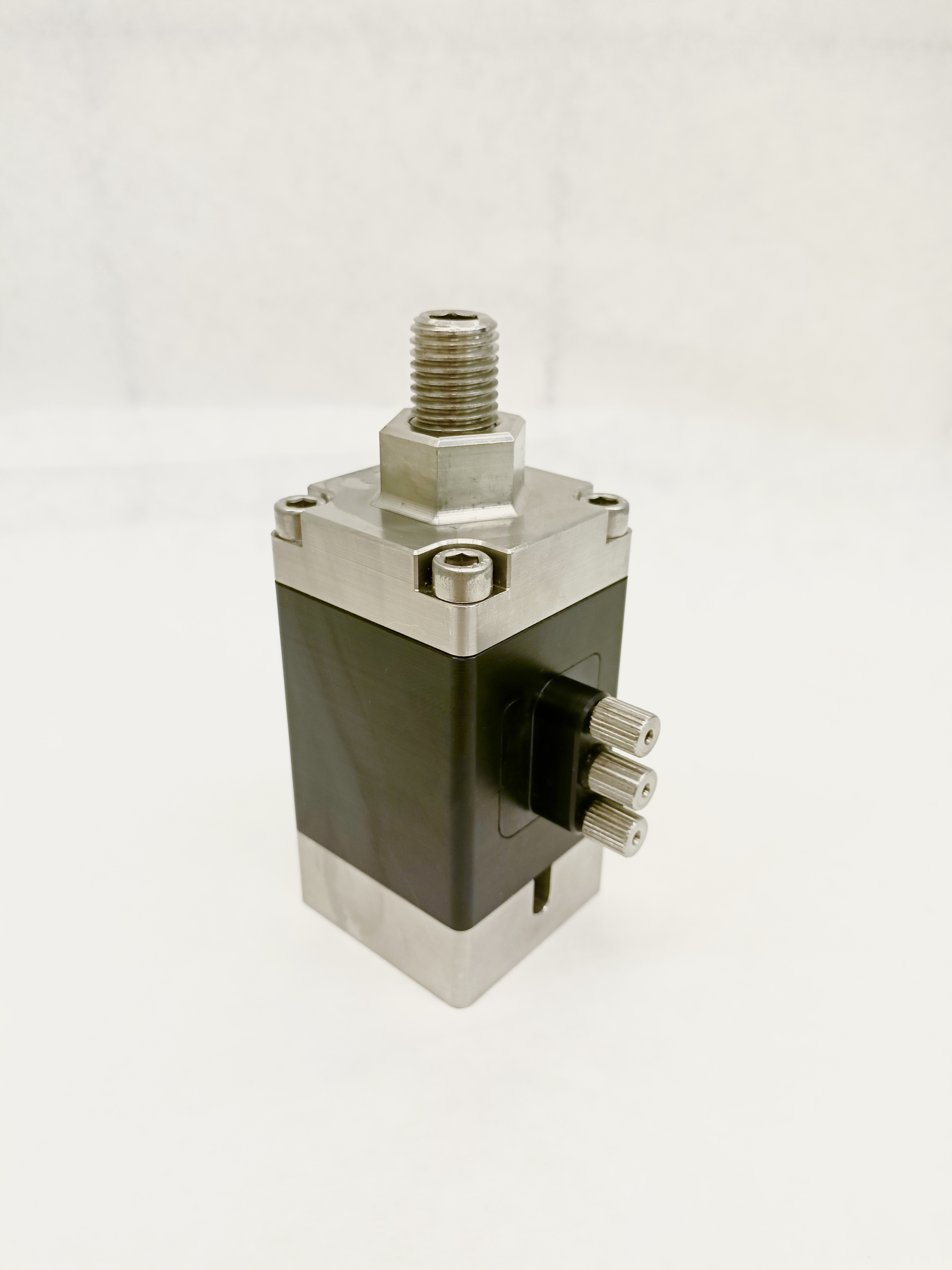The development of EMU was carried out by a multidisciplinary team of experts from the Centre of Nanotechnology, CEET, and FMT. Under the leadership of Grażyna Simha Martynková (CNT) and Vlastimil Matějka (FMT), the team built upon the activities of the REFRESH project. The design and construction of EMU were intensively pursued by Oto Mušálek (CNT, FMT). During the two-year development of the measuring cell, young researchers—doctoral students Lukáš Plesník (CNT) and Ondřej Mušálek (FMT)—also joined the project. To further optimize the communication between the cell and the control software, Vratislav Mareš (FMT) was invited to contribute to the EMU development.

The Electrochemical Measuring Unit (EMU) is designed for detailed measurement of battery and supercapacitor properties, as well as for the characterization of materials used in their production. With its advanced functionalities, it enables the investigation of electrochemical processes in energy devices while simultaneously monitoring critical parameters such as pressure and temperature during operation.
Unique Features and Benefits
EMU is distinguished by a range of innovative characteristics that make it unique on the market:
- Compact design for easy handling and efficient use of laboratory space.
- Modular architecture adaptable to the specific requirements of individual customers.
- Interchangeable cartridges that eliminate measurement errors, save time, and reduce operational costs.
- Extensive characterization capabilities enabled by a broad set of electrochemical techniques.
- Three-electrode configuration (two working, one reference) for precise analyses.
The measuring cell can be equipped with additional functions tailored to specific research needs – a pressure sensor for monitoring volumetric changes in the sample, a temperature sensor for thermal monitoring, and a heating element for controlled temperature variation during experiments.

Broad Range of Applications
EMU finds application not only in the development of new materials for the construction of batteries and supercapacitors but also across other areas of research. It is manufactured from chemically and mechanically resistant materials, ensuring long service life and durability even under exposure to aggressive substances.
EMU significantly simplifies, accelerates, and reduces the cost of measuring electrochemical parameters of materials in research institutions such as universities, academies of sciences, research centers, and companies within the energy industry.
Patent Protection and Future Perspectives
The breakthrough EMU solution is currently undergoing patent proceedings, underscoring its unique character and outstanding scientific and technological contribution.
The development of EMU represents a model example of fruitful interdisciplinary collaboration between the Centre for Nanotechnology (CNT), CEET, and the Faculty of Materials Technology (FMT). This synergy of expertise in materials engineering, electrochemistry, and nanotechnology has enabled the creation of a device that brings new possibilities for energy materials research.
Thus, EMU not only strengthens the position of CNT and FMT as leading research institutions in the field of materials science in the Czech Republic but also opens new pathways for future scientific discoveries in chemical energy storage. The interdisciplinary approach applied during EMU’s development establishes a solid foundation for further breakthrough innovations in this strategically important field. By developing a multifunctional device capable of testing sustainable materials for batteries and capacitors, thematic alignment with the MATUR project—jointly conducted by CNT and FMT—has also been achieved.